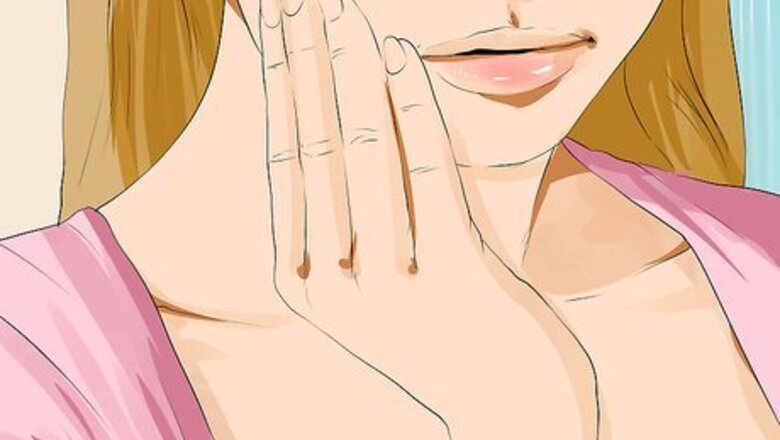
views
X
Expert Source
Pradeep Adatrow, DDS, MSBoard Certified Dentist & Oral Surgeon
Expert Interview. 5 November 2020.
Tetanus is a serious disease and, in all cases, requires professional medical attention. In addition to following the advice from your doctor, here are some strategies to help handle the pain and muscle spasms in your jaw.
Seeking Medical Attention
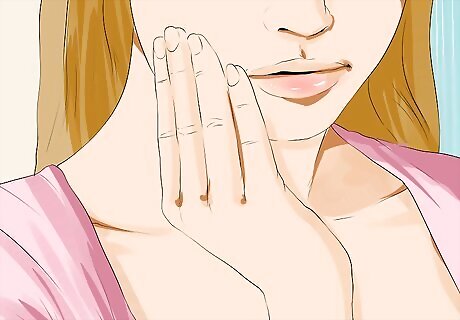
Understand what lockjaw is. "Lockjaw" is a colloquial term used to describe spasms of the masseter muscles (the jaw muscles) as a result of being infected with tetanus. Tetanus is a bacterial infection that results in painful muscle spasms; there is no cure, and 10–20% of cases result in death, which is why preventative tetanus vaccination is key. Most people now receive the tetanus vaccine in their youth, which makes this disease quite rare. The tetanus vaccine lasts for 10 years. After that point, a booster vaccine is needed. Tetanus isn't passed from person to person. It's contracted via a wound, usually a deep wound that allows bacteria to get into the body. Symptoms of tetanus usually begin to appear about a week after being infected. In addition to jaw spasms, other symptoms of tetanus can include headache, fever, sweating, restlessness, trouble swallowing, irritability, and strange-looking facial expressions.
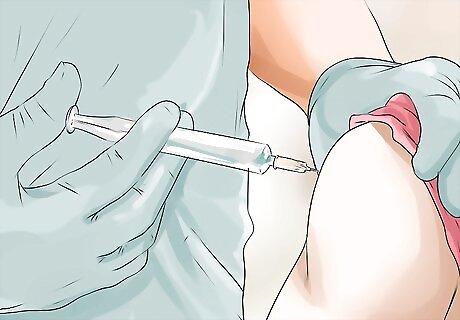
Seek rapid medical attention. Ideally, you will have seen a doctor right when you were first potentially exposed to the tetanus bacteria. Regardless, you need to be treated in a hospital setting right away if lockjaw develops. If you have not been immunized within the past 10 years, they will inject you with tetanus immune globulin followed by the vaccine. 3,000 to 6,000 units of tetanus immune globulin drug is administered via intramuscular shots. This injectable solution contains Immunoglobulin G, an antibody that helps your body get rid of all the toxins produced by the tetanus causing bacteria. Administration of this treatment will boost your immunity, helping you fight the infection. A local anesthetic can be added to the injection to lower the amount of pain. Administration of this drug must always be done under medical supervision. The doctors will also clean your wound thoroughly, and remove any foreign material that may be present in the wound, to minimize the chances of a tetanus infection. Note that if you are already presenting with symptoms of "lockjaw," this means that you are late in seeking treatment. However, doctors will give you the injection anyway even though it is preferable to have gotten it earlier since it can still be somewhat effective later on.
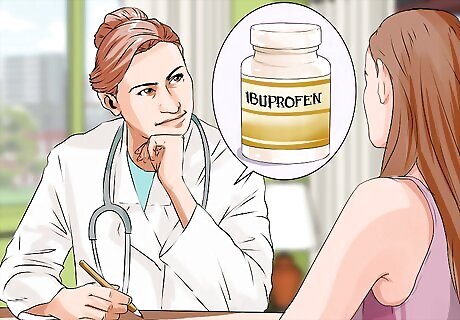
Try medications. If you have a tetanus infection, home treatment is not an option, and medications will be administered in the hospital. Muscle relaxers, such as Carisoprodol, and sedatives are commonly used to help relieve muscle spasms in your jaw and elsewhere on your body. Neuromuscular blocking agents are also useful in treating spasms. These medications include pancuronium, vecuronium, and baclofen. Your breathing and heartbeat can be affected by muscle spasms as well as by the use of sedatives, so you may need to use a ventilator while in the hospital. In severe causes, you may be taken to the ICU.
Using Home Remedies for Symptom Management
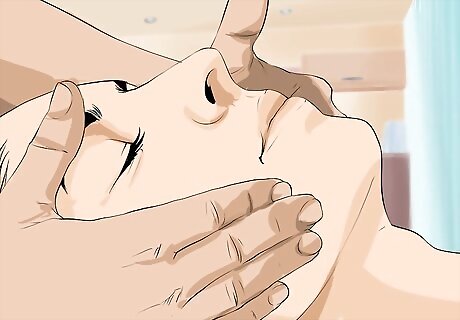
Try massage. Massaging the masseter muscles and jaw joints will help ease the pain. Apply light pressure and massage your jaw muscles to relieve pain. Use your index finger and middle finger to rub your cheeks to find the tender point on the jaw. Once you pinpoint the location, massage with your fingers in a circular motion for 30 seconds. Be careful not to press too hard. It should be just slight optimal pressure such that it causes no pain and gives relaxation.
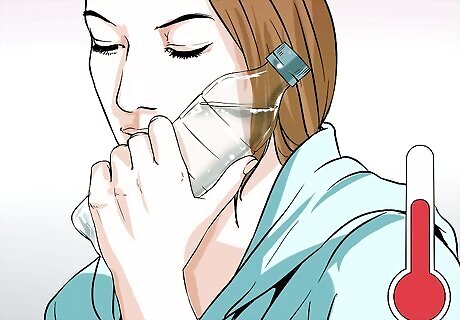
Use heat. Heat is great for relaxing your muscles, and will help you get rid of muscle spasms by increasing the local blood flow. Use a hot water bottle or heating pad by placing it on the desired area. Hold the heat source in the affected area for about 30 minutes. Be careful not to apply a high heat level, as you may cause burns.
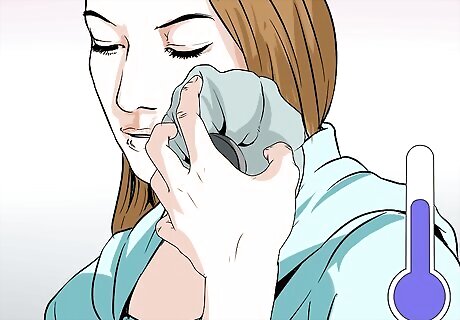
Cool the area. Using ice packs in conjunction with heat is a great remedy. Lower temperature will help ease inflammation, thus relieving pain. Apply an ice pack for about 5-10 minutes after the heat treatment, and then switch between the two.
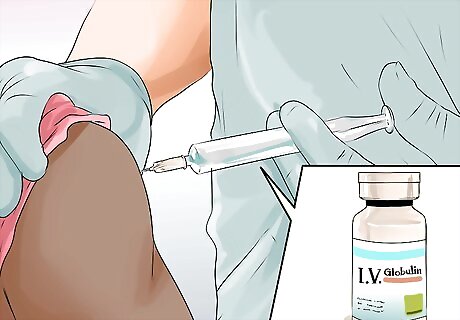
Be aware that these at-home strategies do not take the place of professional medical treatment. They can be used to help with the pain of muscle spasms in your jaw that result from tetanus, but receiving tetanus immune globulin and professional medical support is key as well.



















Comments
0 comment